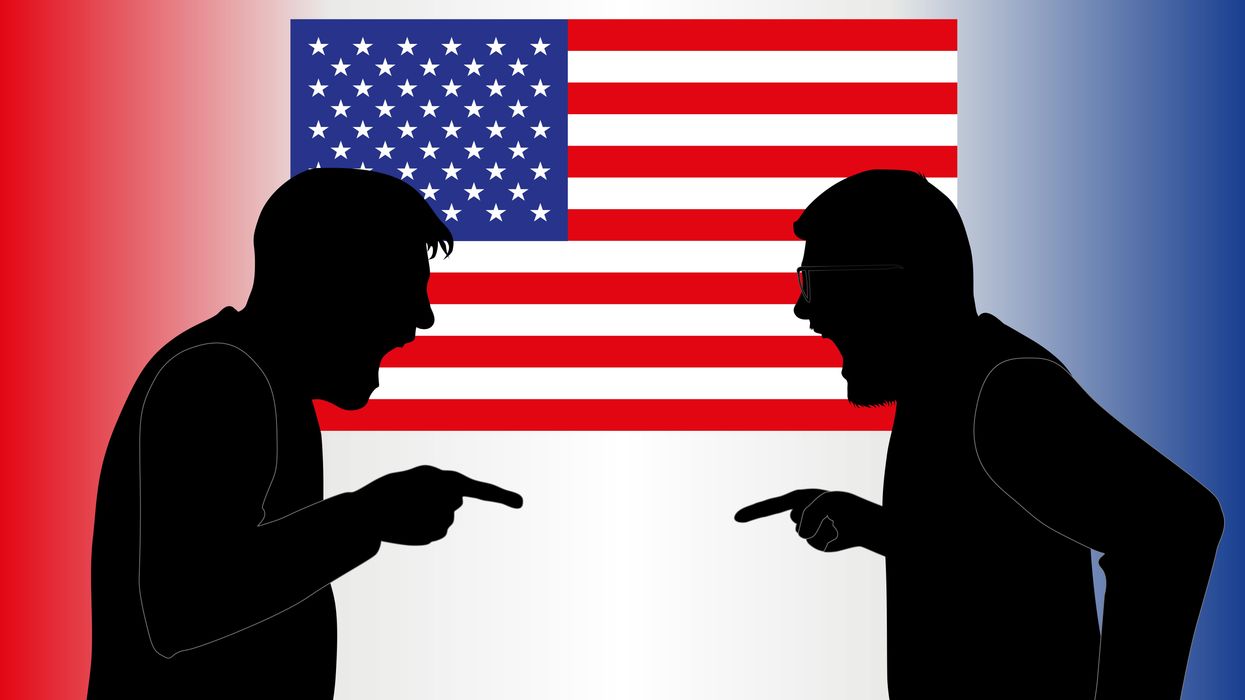In an era of increasing political polarization, the need for civility in politics has never been greater. Engaging in constructive and respectful dialogue is essential for maintaining a healthy democracy, fostering unity, and ensuring that governments function effectively. Unfortunately, modern political discourse is often characterized by hostility, personal attacks, and a reluctance to find common ground.
President Donald Trump reminded me of this deterioration in political decorum when he sparred with Maine Gov. Janet Mills, a Democrat, over transgender athletes during a meeting of governors at the White House last week.
Here is the back-and-forth as reported by the Associated Press:
“Is Maine here, the governor of Maine?” he asked.
“I’m here,” she replied.
“Are you not going to comply with it?” he asked.
“I’m complying with state and federal laws,” Mills replied.
Trump responded, “We are the federal law.” He again threatened the state’s federal funding and said Maine may be a Democratic state, but its residents largely agree with him on this issue.
“We’re going to follow the law,” she said.
“You’d better comply,” Trump warned. “Otherwise, you’re not getting any federal funding.”
“We’ll see you in court,” the governor replied.
“Good, I’ll see you in court. I look forward to that. That should be a real easy one,” Trump said. “And enjoy your life after governor because I don’t think you’ll be in elected politics.”
When politicians refuse to engage in respectful discussions, it weakens public trust in government institutions and undermines the ability of leaders to address pressing societal issues.
By prioritizing respectful dialogue, cooperation, and mutual understanding, we can rebuild trust in political institutions, promote effective governance, and create a political landscape where diverse perspectives are valued. Right?
Robert B. Talisse, a W. Alton Jones Professor of Philosophy and Political Science at Vanderbilt University, wrote in a 2020 column for The Conversation that civility may be too demanding, asking too much of passionate human nature. "People are prone to see, and complain about, incivility in their political opponents while being blind to, and silent about, the same flaws in themselves and those like them. And once they spot an opponent being uncivil, they free themselves to retaliate in kind."
The Challenges and Possibilities of Civility
Civility in politics faces numerous obstacles. Hyper-partisanship has created an environment where compromise is often seen as a weakness rather than a necessary tool for governance. When politicians and citizens prioritize ideological purity over constructive dialogue, the space for civil discourse diminishes.
Dr. Christopher Lynch, a Missouri State University political science professor, said that civil conversations aim to genuinely understand another position different from ours. Lynch was interviewed about why it’s important to maintain civility in political discussions and how to achieve it following a national survey on why political-based conflict was rising ahead of the November 2024 election.
Dr. LeAnn Brazeal, associate professor of communication, added that the goal of conversations should not be to win but to understand. “Genuine listening helps us understand and see where our interests intersect,” she said.
I agree with Brazeal and Lynch that a more productive approach is to seek a deeper understanding of the complex factors that contribute to different perspectives. Doing so can help reduce polarization and foster more constructive dialogue.
The role of social media and sensationalist news outlets is another obstacle that has exacerbated political divisions. Online platforms encourage echo chambers, where individuals are exposed only to views that align with their own, reinforcing polarization. Additionally, the immediacy and anonymity of social media facilitate hostile exchanges, making productive discussions more difficult.
In Paving the path forward to strengthening democracy, I shared that in times of high conflict, it's common for people to split into two opposing groups and view each other negatively. This can lead to generalizations and name-calling, which often dehumanize the other side and escalate tensions.
The media has a significant role in fostering a culture of civility. News outlets should strive for balanced reporting and avoid sensationalism that fuels division. Journalists can contribute to civility by holding politicians accountable for inflammatory rhetoric and promoting thoughtful discussions on key issues.
As a solutions journalism practitioner, I leverage Complicating the Narratives, which helps journalists find new ways to report on controversial issues and polarizing politics. It draws on the experience of experts in conflict mediation. When reporters use these strategies, they listen better, ask more revealing questions, effectively introduce opposing viewpoints, and embrace nuance in their reports. They learn to tell more accurate, richer, and fuller stories.
Citizens, too, are responsible for engaging in respectful discussions, seeking to understand different perspectives, and rejecting the temptation to dehumanize political opponents are crucial steps toward a more civil political landscape. Social media, in particular, should be used as a space for meaningful dialogue rather than a breeding ground for hostility and misinformation.
While the current state of political discourse may suggest that civility is unattainable, I believe it remains possible if concerted efforts are made at all levels of society.
By prioritizing respectful dialogue, cooperation, and mutual understanding, we can rebuild trust in political institutions and create a political landscape where diverse perspectives are valued. Civility in politics is not just an ideal—it is a necessity for the stability and success of any democratic society. The responsibility to uphold it lies with everyone—leaders, media, and citizens alike. Only through collective effort can we bridge divides and work towards a more inclusive and functional democracy.
Hugo Balta is the executive editor of the Fulcrum and a board member of the Bridge Alliance Education Fund, the parent organization of The Fulcrum. He is the publisher of the Latino News Network and a trainer with the Solutions Journalism Network.




















Trump & Hegseth gave Mark Kelly a huge 2028 gift